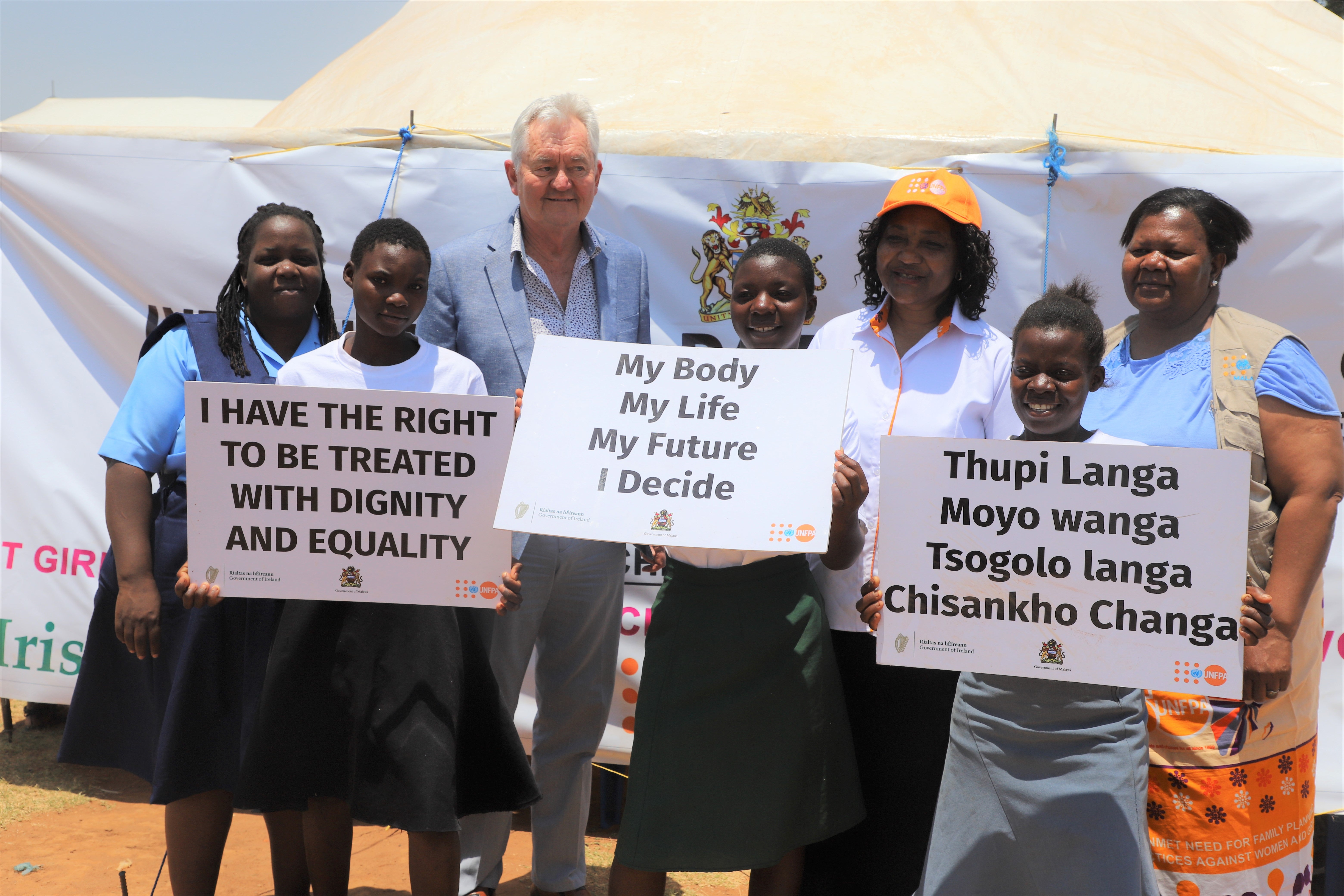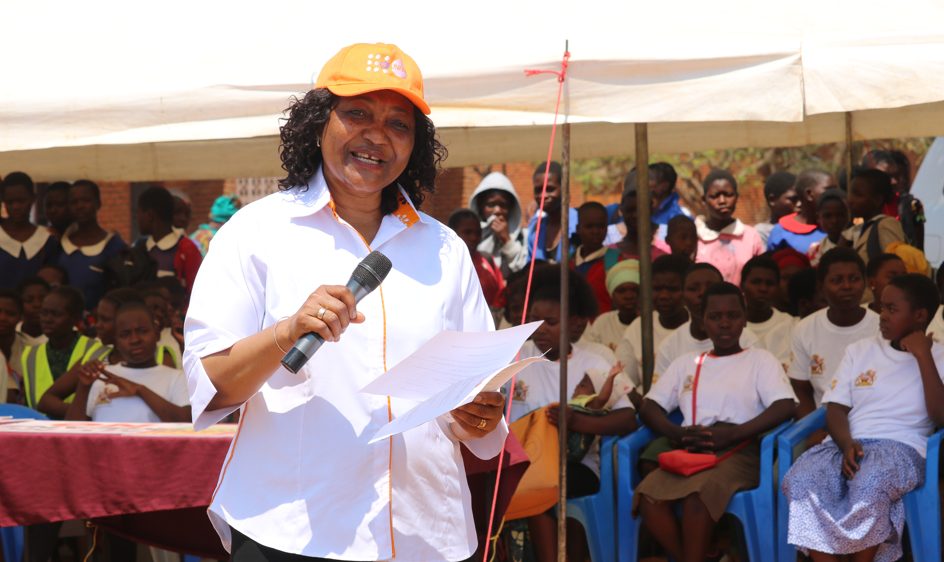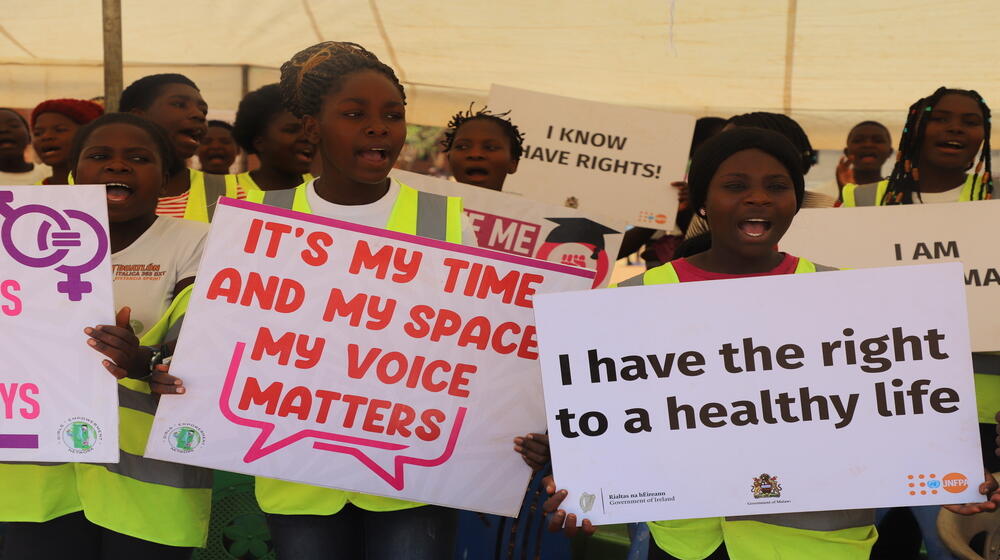Lilongwe, Malawi- Kondwani Sikoti and his friends have endured a torrid time ever since they started working as male champions. This was to be expected. Mr. Sikoti and his friends come from a community where deeply entrenched tradition promote male masculinity. Because of this, their male folk accused them of ‘going soft’ and becoming ‘womanish’.
According to Mr. Sikoti, they were ready for such a backlash as they had been told to expect the same during their training.
“In our tradition, we grow up being told that men are leaders and women are there to follow our orders, which is wrong” says Mr. Chikoti.
And we knew this wouldn’t be easy to change, hence our continued resolve to engage men in our communities for them to understand that men and women have the same capabilities.
In March this year, Mr. Sikoti and a group of another nine males from Chitseka village in Lilongwe rural, received training from Girls Empowerment Network (GENET) to become the first cohort of male champions in their area. The training was supported by UNFPA under the Technology and Empowerment Enhancing Networks in Safe Spaces (TEENS) project funded by the Government of Ireland.

The TEENs project responds to priorities of women and girls’ and their communities to enhance their capabilities to fight GBV and increase awareness of their reproductive health and rights. The role of men and boys is critical to the project’s success, as evidence has shown, are the main perpetrators of GBV, hence the recruitment and training of male champions.
Despite a difficult start, the group is making inroads and now boast of 50 members. In the past eight months, they have managed to meet with chiefs, religious leaders among others, to brief them on their work. The support from local leaders has helped them get platforms during community events to spread messages on ending gender-based violence (GBV) and child marriages.
According to Mr. Sikoti, they have so far reached out to more than 1,000 men and boys with awareness messages on GBV. In addition, the group has also engaged parents on the importance of supporting girl-child education, Mr. Sikoti told participants gathered during this year International Day of the Girl Child held at Chiseka primary school in the district.
Among those in attendance were the Deputy Head of Mission, Embassy of Ireland – His Excellency Diarmuid Mcclean, the UNFPA officer in Charge, Ms. Miranda Tabifor, local chiefs, religious leaders and representatives from community leadership structures.
In his remarks, Mr. Mcclean said he was impressed by the work the project is doing and encouraged more men and boys to be part of the revolution of ending GBV and child marriages in the area.
“From the perspective of the Embassy of Ireland in Malawi, and Ireland as a country, I want to say thank you for the great work you are doing as a community in ending GBV and child marriages,” he said. “One day, a boy or girl from this community who will benefit from this project will look back 20 years from now and say, ‘I am a leader because of this project’. So, let’s work together to make this dream happen.”

Ms. Tabifor weighed in saying all stakeholders must come together and act with urgency and commitment to end child marriage by tackling its root cause, dismantling harmful gender norms and stereotypes.
She explained: “These girls have hopes to fulfill and dreams to realize. Every single one of us can commit to be their allies and champions. Instead of sidelining a girl, shine a spotlight on her. Instead of silencing her, hand her a microphone.
“Hear what she has to say. Give her the chance to chart her destiny and be a force for positive change,” Ms. Tabifor implored with the hundreds gathered at the event.
By Joseph Scott, Communications Analyst


